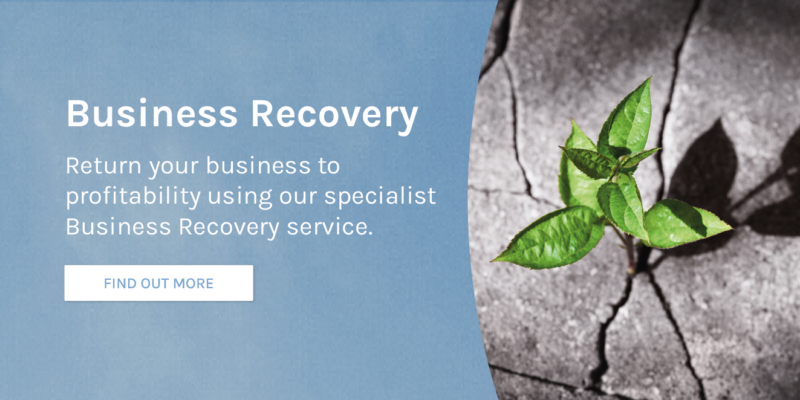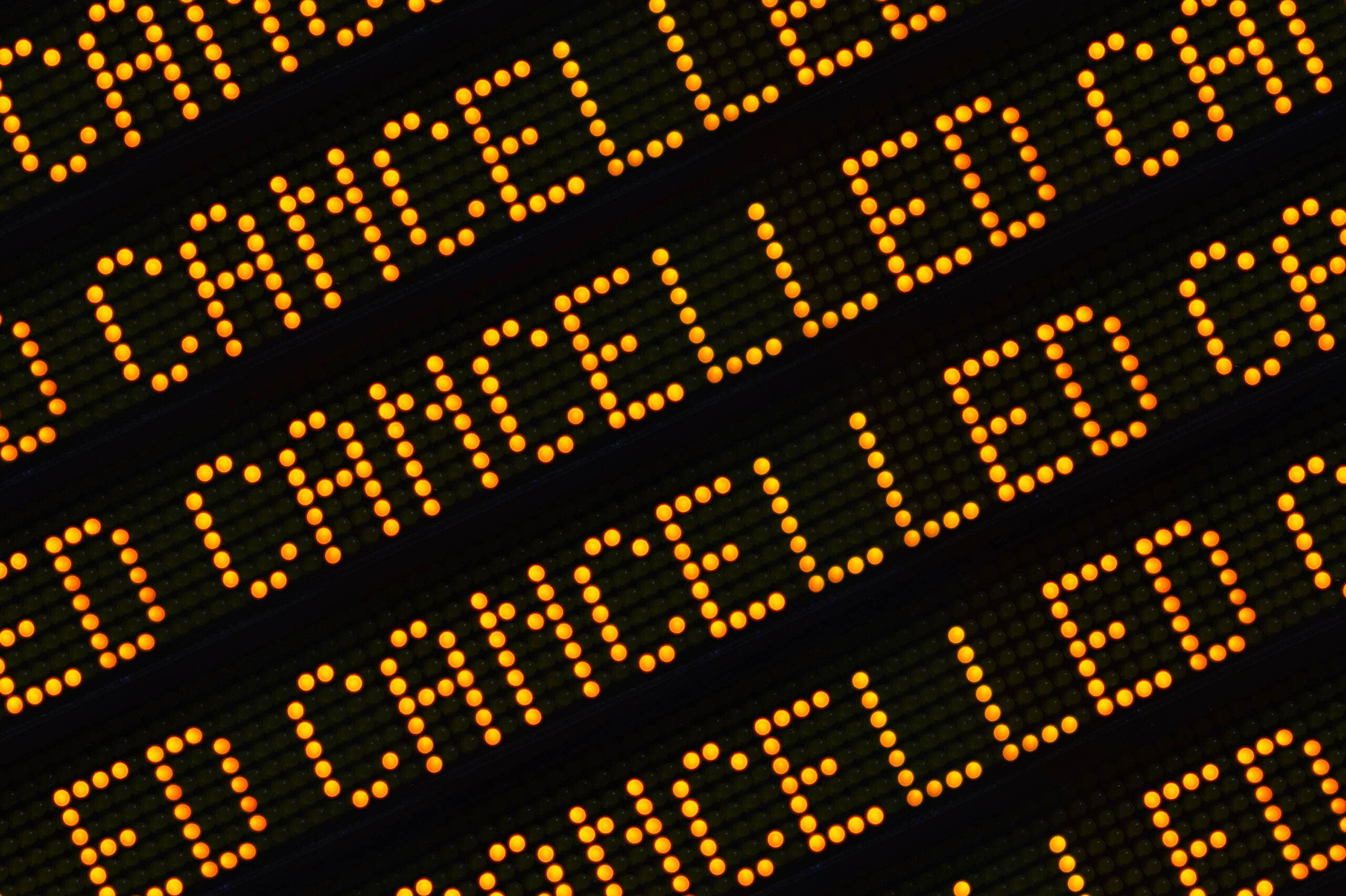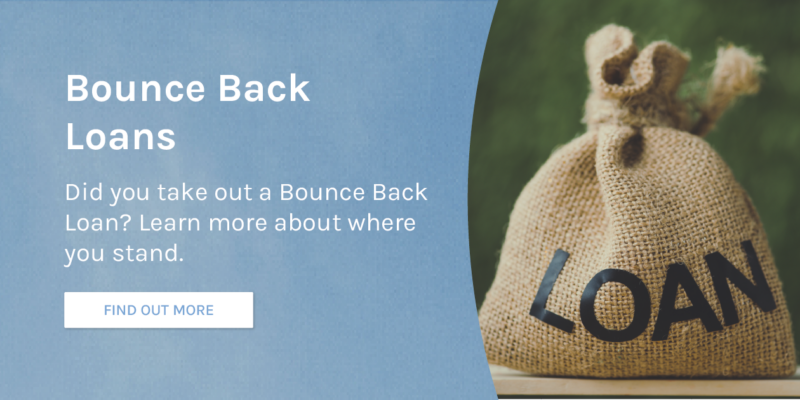The Bounce Back Loan was introduced during the height of the COVID-19 pandemic. It was seen as a way for the British government to offer a lifeline to businesses struggling to keep themselves afloat due to revenues for many being cut off overnight.
However, there has been some confusion about the government’s involvement in the loan, and what that means for anybody unable to pay. This has led many to ask the question: Will bounce back loans be written off for sole traders, company directors, self employed business people, or anybody who was able to take out the loan prior to its closure?
As businesses find it difficult to repay these government backed loans, many might wonder if there are any options for reprieve? Find out more in our blog.
What are Bounce Back Loans?
Closed to new applications and top-up applications on the 31st March 2021, the bounce back loan (BBL) scheme was introduced to allow small-medium sized businesses to borrow up to 25% of their turnover in light of the serious financial issues caused by the COVID-19 pandemic.
Key aspects of the government’s BBL initiative were:
- Loans available between £2,000-£50,000 (up to 25% annual turnover)
- The government pledged to cover the first 12 months of interest
- No repayment was required for that first 12 month period
- Interest rates were capped at 2.5%
- The BBLs were spread across six years, with no early repayment charges
- The government provided a 100% guarantee to lenders
In order to have been eligible to apply for the BBL scheme, a business owner must have been able to prove that their company was actively trading and based in the UK, adversely impacted by COVID-19, and able to declare that the business was not insolvent.
Virtually any company could apply. The only businesses that were ineligible for a bounce back loan were:
- Banks
- Insurers/Reinsurers
- Public Sector Organisations
- Grant funded higher-education establishments
- State funded primary/secondary schools
The purpose of bounce back loans was to allow companies to continue trading in the face of unprecedented financial difficulties. The idea was to supply struggling businesses with an injection of money that would let them invest in stock, pay workers, pay for fuel, etc.
However, some companies took the introduction of the BBL to be a handy replacement for lost revenue — and this idea left many struggling once repayments were due.
For a more in-depth answer to the question ‘what are bounce back loans’, read our dedicated blog on the subject.
What Happens to Directors Who Can’t Repay Bounce Back Loans?
As a government backed loan, the lender of a BBL was not required to provide any personal liability. Effectively, were you to default on your loan, the UK government would technically be seen as liable for the debt, making any serious, long-lasting repercussions unlikely.
If you were to default on your BBL, you would not be required to give up any assets and it would not impact your credit score.
However, while you may not, in theory, be liable for the debt, that doesn’t mean you are likely to get off scot-free. In the wake of the loan being handed out in the first place, and in light of the relatively favourable terms offered, the Government has put increasing pressure on bank lenders to recover repayment.
From the Government’s perspective, these loans were handed out in good faith and for the benefit of the British economy. The loans were always intended to be repaid, and were not grants to be written off. As a result, the banks will chase unpaid BBLs in a similar fashion to how they would treat any other type of unsecured loan.
Ultimately, while you won’t be financially ruined if you can’t repay your bounce back loans as a company director, there is little chance that you will be able to get out of it unless repayment truly is not a viable option for you.
What if the Company is Insolvent?
If a company is insolvent, the interests of its creditors takes precedence and outweighs those of the shareholders. This will mean that a director will no longer have the freedom to run their business with the explicit interest of the shareholders in mind.
Additionally, if the firm’s position becomes so serious that liquidation begins to appear inevitable, then the director must begin to act in a way to ensure that creditors are not at a disadvantage and can receive as much of what they are owed as possible.
In liquidation, assets will be realised and all monies raised will be used to pay the costs associated with liquidation, before then going on to the creditors. Traditionally, a director can be found personally liable in the event of a personal guarantee (unless said guarantee is later found to be unenforceable). However, in the case of the BBL scheme, the British Business Bank ensured that personal guarantees would not be taken by any lenders. This was an explicit condition of providing the loans in the first place.
While this remains to be true, there was another method of COVID financing where personal guarantees could be taken out. The Coronavirus Business Interruption Loan Scheme was also introduced to support small-medium sized companies struggling due to the pandemic.
But unlike the BBL scheme, lenders could insist on a personal guarantee from company directors on any loans over £250,000. This would mean that should they be unable to repay, a director could find themselves liable.
Will Bounce Back Loans be Written Off For Sole Traders?
Sole traders, unlike directors of traditional limited companies, do not have limited liability protection if they are unable to repay their bounce back loan. This means that in the event that a sole trader or self-employed business person cannot repay their BBL, it is likely that they will become personally liable for the debt accrued.
Sole traders do not have the same level of legal separation between business and personal finances that limited company directors have. This means that the level of personal protection is significantly lower.
If you can’t pay a bounce back loan as a sole trader, personal assets could be recovered to attempt to repay the debt. The lender could even apply to make you bankrupt, should it be deemed necessary.
One small positive is that when it comes to BBL, your primary residence and main personal vehicle are exempt from recovery — meaning that failure to repay your BBL may not leave you starting completely afresh.
For more information about what happens if you can’t pay back your BBL, read our in-depth blog on the subject.

Will Bounce Back Loans be Written Off For Sole Traders?
Unlike directors of a limited company, sole traders and the self-employed do not have limited liability protection when it comes to bounce back loan’s. This means that, were a sole trader to be unable to repay their BBL, they would likely be seen as personally liable for the debt.
Sole traders do not have the same level of legal separation between business and personal finances that limited company directors have. This means that the level of personal protection is significantly lower.
If you can’t pay a bounce back loan as a sole trader, personal assets could be recovered to attempt to repay the debt. The lender could even apply to make you bankrupt, should it be deemed necessary.
One small positive is that when it comes to BBL, your primary residence and main personal vehicle are exempt from recovery — meaning that failure to repay your BBL may not leave you starting completely afresh.
How to Write off Bounce Back Loans
Ultimately, the only way to write off a bounce back loan is to enter into a business recovery plan via a formal insolvency arrangement— such as a Voluntary Arrangement. This is because while BBLs were guaranteed by the government, that does not mean they ever planned to step in and settle any and all debts that couldn’t be paid.
A business recovery plan is a way for somebody faced with significant financial issues to come to a form of agreement with regards to how they could best manage to repay their debt.
The benefits of coming to terms on a business recovery plan include:
- The debt may be frozen
- Pressure from creditors will cease
- Repayment terms can be set at an interval that suits you
- Any worries of legal issues end
Primary Options If You Can’t Afford to Repay Bounce Back Loan
If you can’t afford to repay a bounce back loan, there are a handful of options available to you. The first thing you should do though is contact an insolvency expert who can help select the best option for you. These options include Company Voluntary Arrangements/individual voluntary arrangements, and utilising the Pay As You Grow Scheme (PAYG).
Pay as You Grow Scheme
Once it became clear that some businesses were struggling to repay their bounce back loans, the government introduced a measure to help. The Pay As You Grow (PAYG) scheme supports firms struggling to repay their BBL.
The scheme allows qualifying companies to request an extension of the terms of their loans. This puts the repayment period up from the standard six years, up to ten years — while retaining the same interest rate of 2.5% across this additional period.
Repayment Holidays
As part of the pay as you grow scheme, there is the option for a company to request a six-month repayment holiday during their loan repayment period.
There are two types of repayment holiday:
- Capital Repayment Holiday: Payment terms are reduced for six months. The company is still required to repay the interest on their loan. You can request a capital repayment holiday three times throughout your loan repayment.
- Full Repayment Holiday: Only available once during the six (or ten) years of repayment. A full repayment holiday allows the business to make no repayments for up to six months (though interest will still accrue).
Repayment holidays allow a struggling business to overcome difficult periods without needing to worry about the implications of not being able to repay their loans for a few months. 
Company Voluntary Arrangement/Individual Voluntary Arrangement
Which of a Company Voluntary Arrangement (CVA) and an Individual Voluntary Arrangement (IVA) works best for you will depend on the structure of your operation.
A sole trader will be able to consider an IVA, while a traditional company is able to utilise a similar method, a CVA. While they can be useful options, neither a CVA or IVA should be entered into lightly. Were they to fail it would put you into a difficult situation as you would effectively be back at square one, with all the debts still remaining.
Company Voluntary Arrangement
A company voluntary arrangement is a formal method where a company comes to a mutually beneficial and legally binding agreement with its creditors over how a debt will be repaid. This often means that the debtor is able to make repayments on more manageable, affordable terms.
For a CVA to be agreed, the debtor will generally need to convince their creditor to make some form of concession over when they receive their money. Though this may not be an issue as in many cases, a CVA will produce significantly better results for all parties than administration or liquidation.
A CVA can be an excellent way of gradually transitioning a debt-laden business to being debt free within a multi-year period. This is because once the term period outlined in a Company Voluntary Arrangement comes to an end, any outstanding debt not repaid will be written off.
Individual Voluntary Arrangement
Similar in principle to a CVA, an Individual Voluntary Arrangement (IVA) is an agreement a sole trader will make with their creditors where payment terms will be spread across a predefined period of time. Traditionally an IVA, much like a CVA, will last for five years. However, the terms and the amount you pay will depend on the specific circumstances of the arrangement.
Insolvency
If you have exhausted all other options, and you are still unable to repay your loan, then the best option left for you may be insolvency.
Providing you took out and utilised the loan without misconduct of any form, then insolvency may actually be the best method you have of completely leaving behind the debt.
However, insolvency is a serious step for all involved, so it is imperative that you consult with a professional before embarking down this route. This will be important to ensure that you cannot find yourself personally liable.
Insolvency Support That Has Your Back
Many forecasts at the time of the pandemic predicted that Britain, and the rest of the world, would feel its impact for years, if not decades, to come. Only a few years removed from lockdowns and some companies are already beginning to feel the weight of enforced bounce back loan repayment. What was once a life vest is, for some, now pulling them under.
So if you’ve been asking yourself ‘will bounce back loans be written off or will I be forced to pay it all back’, as covered above, all is not lost. For limited company directors, failure to repay a BBL will have no negative bearings on your personal finance. And for sole traders, while a more stressful situation, there are still options available to you.
If you are facing financial hardship and need support, get in touch with a licensed insolvency specialist today. We are on hand to support you should you ever need a business recovery plan, support with your bounce back loan, assistance with administration, liquidation, solvent winding up, and much more.
[/fusion_text][/fusion_builder_column][/fusion_builder_row][/fusion_builder_container]


